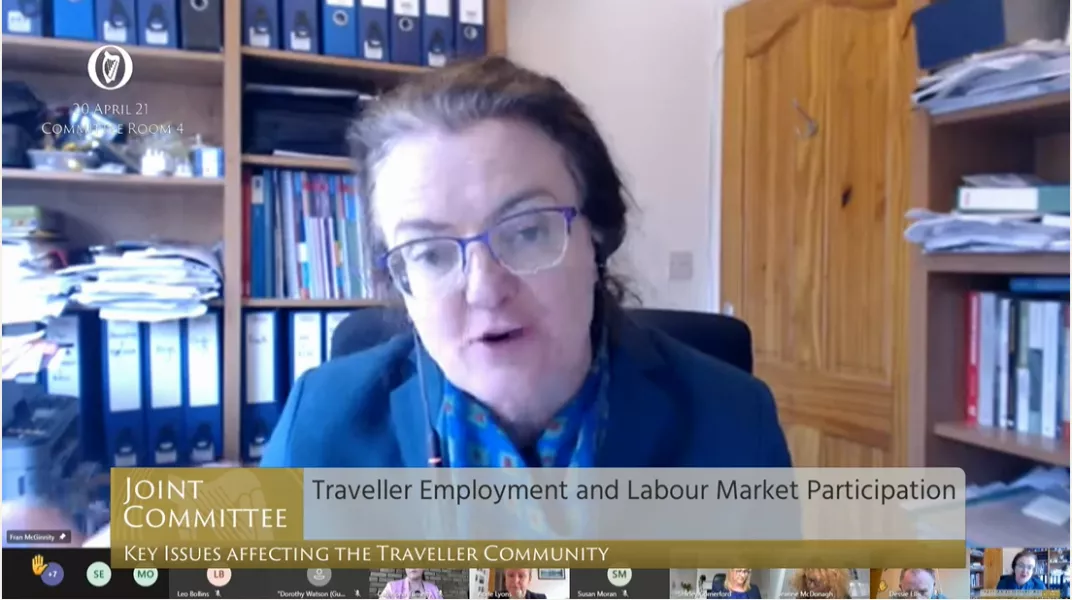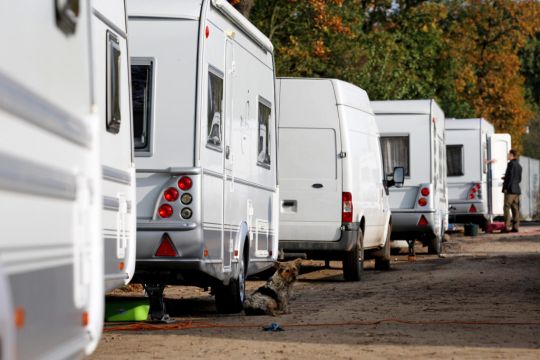The Travelling community experiences the greatest degree of disadvantage “by far” among minority groups, a think tank has said.
The Economic and Social Research Institute (Esri) studied levels of disadvantage among the nine groups covered under the Equal Status Act – gender, marital status, family status, age, disability, sexual orientation, race, religion, and membership of the Traveller community.
It found that Travellers experience higher levels of discrimination and are consistently left behind in education, employment, housing and health.
Esri’s Professor Frances McGinnity said: “As researchers, we have studied the disadvantage experienced by a range of groups, particularly those covered by the nine grounds specified in equality legislation.
“Of these groups, it is fair to say that the degree of disadvantage experienced by Travellers is by far the greatest across these groups in a range of areas, including the reported experience of discrimination, educational attainment, employment, housing and health.”

The findings were presented to the Oireachtas Committee on Key Issues affecting the Travelling Community on Tuesday.
The committee is chaired by Senator Eileen Flynn, who became the first Traveller to serve in the Oireachtas in 2020.
The report uses Census data from 2011 comparing the experience of Travellers and non-Travellers, and Prof McGinnity said there is evidence to suggest little has changed since then.
Among working age Travellers, those aged 25 to 65, just eight per cent had completed the Leaving Cert, compared with 73 per cent of non-Travellers.
Just one per cent of Travellers of working age had a third level degree, compared with 30 per cent of non-Travellers.
Prof McGinnity added: “The gap between Travellers and others in terms of completing second level was actually larger among younger adults.
“Among those aged 25–34 years, an estimated 91 per cent of Travellers left school early – that is, without completing second level education – but only 14 per cent of non-Travellers.
“This suggests that Travellers had not benefitted as much as non-Travellers from the considerable improvement in levels of education in Ireland since the 1960s.”

The unemployment rate for Travellers aged 25 to 64 was 82 per cent in 2011, compared with 17 per cent for others.
“In our work, we found the lower levels of education among Travellers was very important in accounting for Travellers not having a job” Prof McGinnity said.
Shirley Comerford, chief executive of the Public Appointments Service, told the committee: “The figures are, frankly, much too low and unacceptable.
“It is incumbent on us as a public sector recruiter to proactively extend the hand of outreach, to listen to the challenges and to enable access and participation from Travellers to a much greater extent.”
Ms Comerford said the high level of unemployment in the community also prevented participation in policy-making decisions.
“For Travellers, this goes beyond employment opportunities – it is about having access, presence and participation in the venues and arenas where discussions, decisions and social policy-making that impact on us all are taking place.”
Ms Comerford said there was a role for Government in making employment more accessible for the community, including the use of quotas in public sector jobs.
She said: “I do think there is a role for Government in terms of showing leadership on this.
“There is certainly a policy element around establishing targets and quotas. As I’ve said previously, they do focus people’s minds.
“As recruiters, I think it’s very incumbent on us to make sure we are visibly out there, that we continue with our outreach work.
“We have a key role in shining a light, sharing best practice, training interview boards and making sure they’re aware of diversity, unconscious bias, making sure that the composition of our interview boards who are participating in recruiting processes live that diversity as well.”
The committee also heard from Jeanne McDonagh, chief executive of the Open Doors Initiative, a group supporting minorities in the labour market.
She said any projects aimed at boosting employment levels among the Travelling community must be peer-led.
She said: “All programmes must be guided by members of the Travelling community itself – they are the best placed to know what their needs are and what would encourage them to participate and how to do this.
“Peer-led services will have the most success.”







